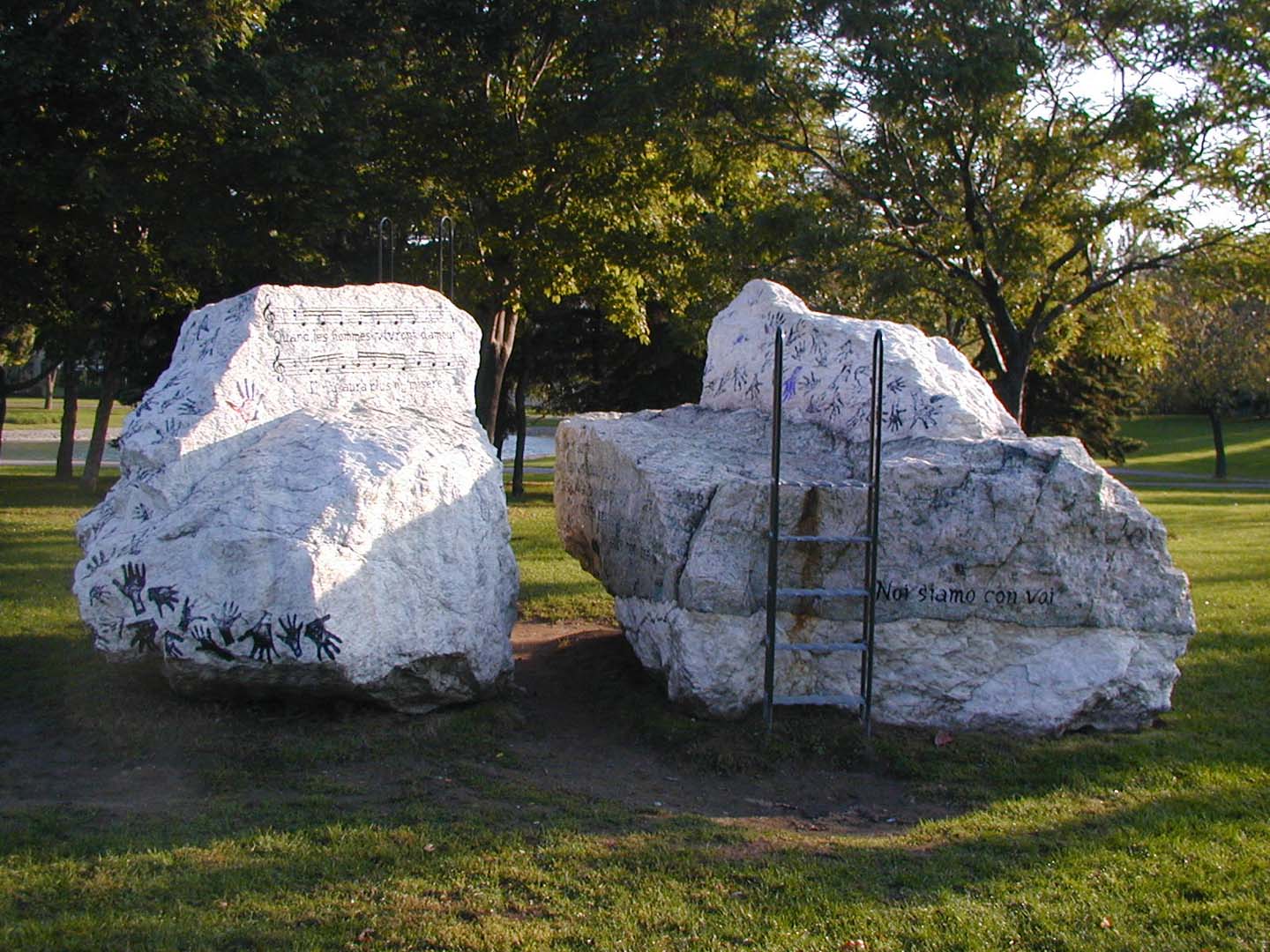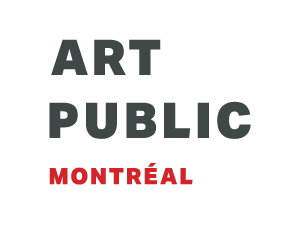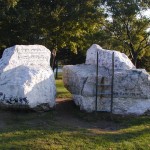

Born in Black Lake, this Québec artist was trained at the University of Ottawa and the École des beaux-arts de Montréal in the 1950s and is known for having upset well-established traditions in Québec, notably through his political engagement and his sculptural work.
Vaillancourt’s long and prolific career has featured by large-scale projects in the public space, including L’humain, a sculpture commissioned by the École des arts et métiers d’Asbestos (1963); Québec libre!, a fountain sculpture for San Francisco’s Embarcadero (1971); and Justice, an anti-apartheid artwork executed for the Palais de justice de Québec (1983).
Artwork description
Installed in Saint-Léonard Park near the library, Armand Vaillancourt’s artwork is composed of two masses of sandstone each of which has a steel ladder leaning against it. Each boulder has a message inscribed on it. On one are music staffs and the words of two verses of the song Quand les hommes vivront d’amour by Raymond Lévesque. On the other is a sentence in Italian, “Noi siamo con voi,” which means “We are with you.”
The boulders, punctuated with hand imprints, refer to the community context within which the artwork was created, whereas the ladders suggest appropriation, even physical appropriation, of the artwork by the residents. The title, Justice et paix (Justice and peace) refers to the social and political context for the artwork.
In this sense, Lévesque’s lyrics intersect with the artist’s conception of art, which involves commitment and the desire to built a better world: “I dream of acting within a society that produces a necessary product, essential to life, a society that produces ideas that make us think. The shape that art might take is only the pretext for ‘carrying’ ideas. The resulting image may encourage people to wake up, to revolt …” 1
1. Armand Vaillancourt, quoted in Zone Art, http://www.zone-art.ca/artiste-prestige/armand-vaillancourt (our translation).


